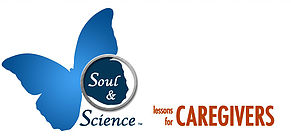WEB MATERIALS

Web Articles
Michael K. Kearney; Radhule B. Weininger; Mary L. S. Vachon; et al. Life: “Being Connected . . . A Key to My Survival” JAMA 2009;301(11):1155-1164 (doi:10.1001/jama.2009.352) (full PDF)
Everett L. Worthington, Jr. “The New Science of Forgiveness” September 1, 2004 (full text)
Fred Luskin “The Choice to Forgive” Greater Good Center, September 1, 2004 (full text)
Witvliet, C.V.O., Ludwig, T.E., & Vander Laan, K.L. (2001). “Granting forgiveness or harboring grudges: Implications for emotion, physiology, and health.” Psychological Science,121, 117-123. (full PDF)
Jill Suttie “How Nature Can Make You Kinder, Happier, and More Creative” Greater Good Center, March 2, 2016 (full text)
Howell, A.J., Dopko, R.L., Passmore, H., Buro, K.”Nature Connectedness: Associations with Well-Being and Mindfulness ” Personality and Individual Differences, Vol. 51 (2), July 2011, 166-171. (for purchase)
C Chalquist “A Look at the Ecotherapy Research Evidence” Emory University (full report)
Websites
The Power of Forgiveness
This website supports the film “The Power of Forgiveness” and provides wonderful resources on this topic.
From Northern Ireland to Beirut to Ground Zero, featuring Elie Wiesel, Thich Nhat Hanh, Thomas Moore, Marianne Williamson, James Forbes and others, The POWER of FORGIVENESS explores the challenges and reveals how forgiveness can transform your life.
The POWER of FORGIVENESS explores recent research into the psychological and physical effects of forgiveness on individuals and within relationships under a wide variety of conditions and translates it into a popular, accessible documentary film for national public television. This includes feature stories on the Amish, the 9/11 tragedy and peace-building in Northern Ireland, along with interviews with renowned Buddhist teacher Thich Nhat Hanh, Nobel Laureate Elie Wiesel, best-selling authors Thomas Moore and Marianne Williamson and others. The film also explores the role forgiveness holds in various faiths traditions. It provides an honest look at the intensity of anger and grief that human nature is heir to. We see in the film that there are transgressions people find themselves unwilling or unable to forgive. Through character-driven stories the film shows the role forgiveness can play in alleviating anger and grief and the physical, mental and spiritual benefits that come with it.
The Fetzer Institute
The Fetzer Institute describes its goal and mission in the following way:
Our goal is to help catalyze and support a broad-scale, spiritually grounded transformation from an ego-centered way of being grounded in separation and fear to an all-centered way of being grounded in oneness and love, with the result that a critical mass of persons around the world embrace love as the guiding principle and animating force for living in sacred relationship with self, others, and the natural world.
We see ourselves as a single node in an expansive web of individuals and organizations around the world who are engaged in this common work. Our contribution to this work includes four broad strategies:
-A new narrative strategy: contributing to a worldview that integrates a sophisticated scientific understanding of physical reality with deep spiritual understanding of the “something more” that binds us together in a deeply interconnected and sacred reality and calls us to a life of love
-A movement-building strategy: accelerating the emergence of a powerful global movement for spiritual transformation
-A spiritual communities strategy: supporting the emergence of new forms of inclusive spiritual communities, both within existing and emerging spiritual traditions
-A science strategy: engaging science to maximize its contribution to the “new narrative” and to deepen our understanding of the factors that shape spiritual growth and development and our ability to love.”
Greater Good Website
The Greater Good Science Center studies the psychology, sociology, and neuroscience of well-being, and teaches skills that foster a thriving, resilient, and compassionate society.
Based at the University of California, Berkeley, the GGSC is unique in its commitment to both science and practice: Not only do we sponsor groundbreaking scientific research into social and emotional well-being, we help people apply this research to their personal and professional lives. Since 2001, we have been at the fore of a new scientific movement to explore the roots of happy and compassionate individuals, strong social bonds, and altruistic behavior—the science of a meaningful life. And we have been without peer in our award-winning efforts to translate and disseminate this science to the public.
